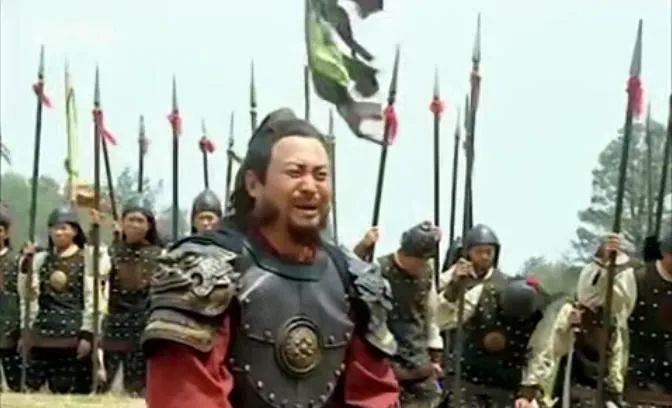Speaking of Li Dingguo, people who know that period of history are familiar with it, this heroic figure in the chaotic world at the end of the Ming Dynasty, who resisted the Manchu Qing Dynasty and "two famous kings", played the most brilliant battle record against the Eight Banner Army in the last years of the Ming Dynasty.
Later generations have made incomparable praise for this famous general, but after the general's death, his son violated Li Dingguo's last words that "he would rather die in the wilderness than surrender to the Qing court" and voluntarily surrendered to the Qing Dynasty.
His son's name was Li Sixing, and he later became the commander-in-chief of Shaanxi in the Qing Dynasty.

There is a very interesting phenomenon in the history of the late Ming and early Qing dynasties, that is, the former officers and troops of the Ming Dynasty have surrendered to the Manchu Qing and become the vanguard of slaughtering their own compatriots. However, the former peasant rebel army has become the pillar of the Southern Ming, whether it is the thirteen families of the Chudong Dynasty who came from Li Zicheng's rebel army, or Li Dingguo, who was born in the Great Western regime, are representatives of such figures.
Li Dingguo was originally a subordinate of Zhang Xianzhong, and before his death, Zhang Xianzhong entrusted Sun Kewang to Li Dingguo and others to follow the Ming Dynasty and swear to die against the Qing and never surrender Manchuria.
Sun Ke hoped that Li Dingguo would join hands to reorganize the army in Yungui and exert great efforts to govern, and play a brilliant battle record of "two famous kings." But as Sun Kewang's ambitions swelled, he and Li Dingguo split. In the end, Sun Kewang surrendered to the Qing court, and Li Dingguo always protected the Yongli Emperor of the Southern Ming Dynasty, turned to southern Xinjiang, and vowed to die.
The Yongli Emperor was betrayed by the Burmese rebel forces and later killed by Wu Sangui, and Li Dingguo led thousands of remnants to wander around the Sino-Burmese border, and before he died, he instructed his subordinates to "die in the wilderness rather than surrender to the Qing court." ”
However, Li Dingguo's will was betrayed soon after.
Li Dingguo originally handed over the power of the army to his deputy Jin Tongwu, who had assisted Li Dingguo in defeating the Qing army in Guilin and other places.
However, not long after Li Dingguo's death, his cousin Ma Siliang had a fierce conflict with Jin Tongwu.
There is controversy in the history books here, one theory is that Jin Tongwu's rough personality led to rebellion, and he died of illness soon after, and Ma Siliang and his generals led the army to surrender to the Manchu Qing.
Another theory is that Ma Silian was in league
Hu Shundu, Wang Daoheng and other generals first set up a banquet to poison Jin Tongwu, and then led his troops to surrender.
As for what role Li Sixing played in this rebellion, there is no clear statement, but it is certain that he did surrender, and together with Liu Zhen, the son of Liu Wenxiu, the king of Southern Ming Shu, he led his troops to surrender to the Qing court.
In the first year of the Kangxi Dynasty, Li Sixing led more than a thousand soldiers and horses to surrender their weapons directly to Wu Sangui's troops, and then Li Sixing was summoned to Beijing.
Kangxi was appointed as the chief military officer of Ningxia, Shaanxi in 26 years, and finally died well.
Li Dingguo, who was born in the peasant rebel army, fought fiercely against the Manchu Qing and was loyal to the Southern Ming, and in the end preferred to die trapped rather than surrender to the Qing court.
His descendants, on the other hand, broke his oath shortly after his death and led his troops to surrender, not knowing how Li Dingguoquan felt.
In fact, Li Sixing's choice may be the choice of most ordinary people, when the hope is dashed and desperate, he can only compromise with fate, all dignity and honor are no longer important, and survival becomes the only consideration.
But the reason why heroes are heroes is because they choose ideals and do not succumb to reality at important decision-making moments, Li Dingguo is a hero, Li Sixing is just an ordinary person, nothing more.